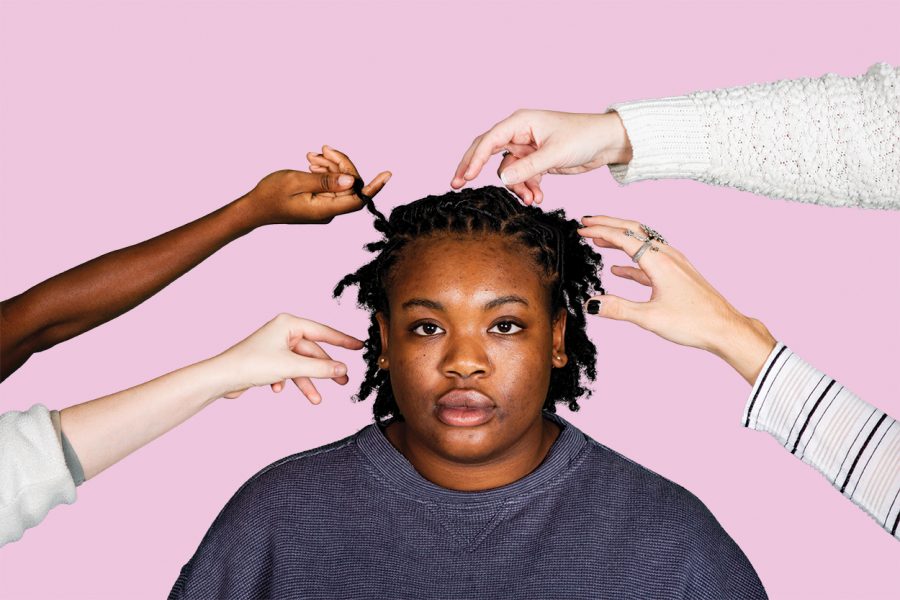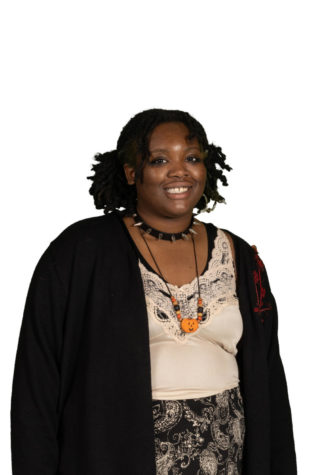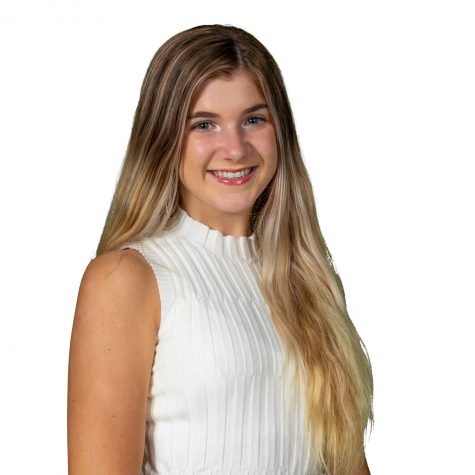Naturally not acceptable
The unhealthy affects of natural hair discrimination on Black women
Photo by Peyton Sims
With the constant pressure that society puts on the Black community, individuals start to embrace their natural hair.
January 2, 2021
In the Black community, hair has always been a staple of our culture. As children, we were taught by society that our natural hair was not good, that it was some type of curse bestowed on us.
In elementary school, I woke early every Sunday morning before church crying about getting my hair flat ironed. I never liked it at all. In fact, I am still terrified of flat irons.
Waking up extra early everyday getting my hair done because my hair was different made me agitated. I longed to have the silky straight long hair of my classmates. I often felt left out of my friends brading circles because my hair was so different from what they expected. I felt out of place because my hair wasn’t that long and it wasn’t as straight as the other girls.
Around fifth and sixth grade my mother, sister and I decided to go natural. My hair was so damaged from the years of abuse that it took so long for it to get back to being healthy. My father wasn’t too fond of my new hair styles. He would often call it “nappy” and “unkept.” It really made me self conscious, so I decided to start getting my hair braided.
Being the only girl in a predominantly white school was quite tough. People often referred to my braids as “ghetto,” “disgusting,” “unkempt” and “unprofessional.” As a middle schooler, this impacted my self confidence. I would usually straighten my hair once a year at this point. Whenever I did, I would receive a flood of compliments, which made me question if my natural hair really was some type of curse. As a child a lot of kids always made fun of my hair.
This single narrative has been pushed on many Black children, a struggle deeply rooted in racism. In certain schools, there are policies against wearing natural afrocentric hairstyles like braids and locs. For example, DeAndre Arnold, a Texas teen was suspended in January 2020 for “violating” the school dress code. He was told to cut his locs or he would not be able to walk for his graduation. Another case is Faith Fennidy, a young girl In New Orleans sent home from school for violating the dress code for her braided hair extensions.
The effects of this discrimination cause insecurity, especially in Black women. As a Black woman, at times I feel like my hair is not professional enough for me taken seriously. I have worried about getting jobs due to my locs. I do even get derogatory terms thrown at me. One girl even said I look like a “thug” now due to my new style. It really made me question why she said that. I wanted to tell her how offensive that was because it made me angry. But I remembered she has never had someone make comments about her hair. Girls like her have been praised for their blond straight hair worldwide. Girls like her get compared to Barbies and are a symbol of perfection. Why is my hair any different?
















